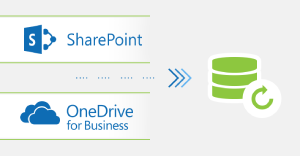Module 1: Introduction to Business Intelligence and Data Modeling
This module introduces key BI concepts and the Microsoft BI product suite.
Lessons
• Introduction to Business Intelligence
• The Microsoft business intelligence platform
Lab: Exploring a BI Solution
• Exploring a Data Warehouse
• Exploring a data model
After completing this module, students will be able to:
• Describe BI scenarios, trends, and project roles.
• Describe the products that make up the Microsoft BI platform.
Module 2: Creating Multidimensional Databases
This module describes how to create multidimensional databases using SQL Server Analysis Services.
Lessons
• Introduction to Multidimensional Analysis
• Data Sources and Data Source Views
• Cubes
• Overview of Cube Security
• Configure SSAS
• Monitoring SSAS
Lab: Creating a multidimensional database
• Creating a Data Source
• Creating and configuring a data Source View
• Creating and Configuring a Cube
• Adding a Dimension to a Cube
After completing this module, you will be able to:
• Describe considerations for a multidimensional database.
• Create data sources and data source views.
• Create a cube
• Implement security in a multidimensional database.
• Configure SSAS to meet requirements including memory limits, NUMA and disk layout.
• Monitor SSAS performance.
Module 3: Working with Cubes and Dimensions
This module describes how to implement dimensions in a cube.
Lessons
• Configuring Dimensions
• Defining Attribute Hierarchies
• Implementing Sorting and Grouping Attributes
• Slowly Changing Dimensions
Lab: Working with Cubes and Dimensions
• Configuring Dimensions
• Defining Relationships and Hierarchies
• Sorting and Grouping Dimension Attributes
After completing this module, you will be able to:
• Configure dimensions.
• Define attribute hierarchies.
• Implement sorting and grouping for attributes.
• Implement slowly changing dimensions.
Module 4: Working with Measures and Measure Groups
This module describes how to implement measures and measure groups in a cube.
Lessons
• Working with Measures
• Working with Measure Groups
Lab: Configuring Measures and Measure Groups
• Configuring Measures
• Defining Regular Relationships
• Configuring Measure Group Storage
After completing this module, you will be able to:
• Configure measures.
• Configure measure groups.
Module 5: Introduction to MDX
This module describes the MDX syntax and how to use MDX.
Lessons
• MDX fundamentals
• Adding Calculations to a Cube
• Using MDX to Query a Cube
Lab: Using MDX
• Querying a cube using MDX
• Adding a Calculated Member
After completing this module, you will be able to:
• Use basic MDX functions.
• Use MDX to add calculations to a cube.
• Use MDX to query a cube.
Module 6: Customizing Cube Functionality
This module describes how to customize a cube.
Lessons
• Implementing Key Performance Indicators
• Implementing Actions
• Implementing Perspectives
• Implementing Translations
Lab: Customizing a Cube
• Implementing an action
• Implementing a perspective
• Implementing a translation
After completing this module, you will be able to:
• Implement KPIs in a Multidimensional database
• Implement Actions in a Multidimensional database
• Implement perspectives in a Multidimensional database
• Implement translations in a Multidimensional database
Module 7: Implementing a Tabular Data Model by Using Analysis Services
This module describes how to implement a tabular data model in Power Pivot.
Lessons
• Introduction to Tabular Data Models
• Creating a Tabular Data Model
• Using an Analysis Services Tabular Data Model in an Enterprise BI Solution
Lab: Working with an Analysis Services Tabular Data Model
• Creating an Analysis Services Tabular Data Model
• Configure Relationships and Attributes
• Configuring Data Model for an Enterprise BI Solution.
After completing this module, students will be able to:
• Describe tabular data models
• Describe how to create a tabular data model
• Use an Analysis Services Tabular Model in an enterprise BI solution
Module 8: Introduction to Data Analysis Expression (DAX)
This module describes how to use DAX to create measures and calculated columns in a tabular data model.
Lessons
• DAX Fundamentals
• Using DAX to Create Calculated Columns and Measures in a Tabular Data Model
Lab: Creating Calculated Columns and Measures by using DAX
• Creating Calculated Columns
• Creating Measures
• Creating a KPI
• Creating a Parent – Child Hierarchy
After completing this module, students will be able to:
• Describe the key features of DAX
• Create calculated columns and measures by using DAX
Module 9: Performing Predictive Analysis with Data Mining
This module describes how to use data mining for predictive analysis.
Lessons
• Overview of Data Mining
• Creating a Custom Data Mining Solution
• Validating a Data Mining Model
• Connecting to and Consuming a Data-Mining Model
• Using the Data Mining add-in for Excel
Lab: Using Data Mining
• Creating a Data Mining Structure and Model
• Exploring Data Mining Models
• Validating Data Mining Models
• Consuming a Data Mining Model
• Using the Excel Data Mining add-in
After completing this module, students will be able to:
• Describe considerations for data mining
• Create a data mining model
• Validate a data mining model
• Connect to a data-mining model
• Use the data mining add-in for Excel







Reviews
There are no reviews yet.